MohammadHossein Rezaei
Online Rubrics Elicitation from Pairwise Comparisons
Oct 08, 2025
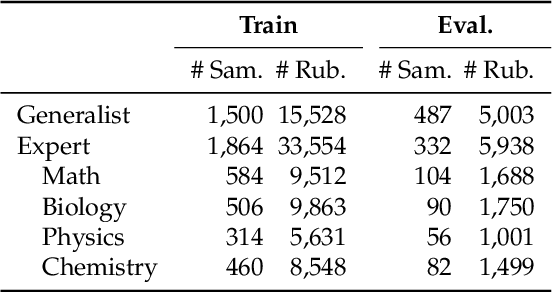
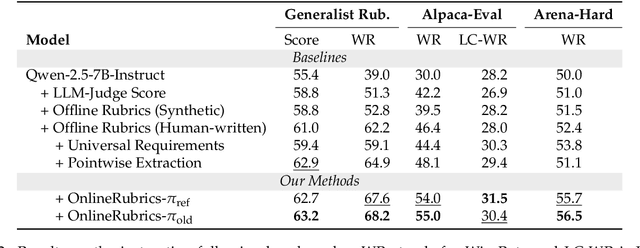
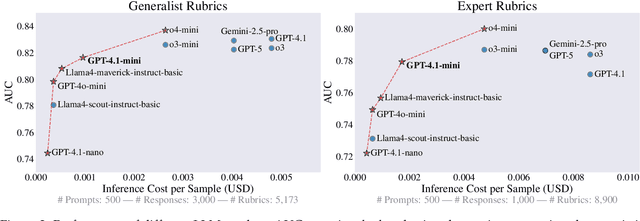
Abstract:Rubrics provide a flexible way to train LLMs on open-ended long-form answers where verifiable rewards are not applicable and human preferences provide coarse signals. Prior work shows that reinforcement learning with rubric-based rewards leads to consistent gains in LLM post-training. Most existing approaches rely on rubrics that remain static over the course of training. Such static rubrics, however, are vulnerable to reward-hacking type behaviors and fail to capture emergent desiderata that arise during training. We introduce Online Rubrics Elicitation (OnlineRubrics), a method that dynamically curates evaluation criteria in an online manner through pairwise comparisons of responses from current and reference policies. This online process enables continuous identification and mitigation of errors as training proceeds. Empirically, this approach yields consistent improvements of up to 8% over training exclusively with static rubrics across AlpacaEval, GPQA, ArenaHard as well as the validation sets of expert questions and rubrics. We qualitatively analyze the elicited criteria and identify prominent themes such as transparency, practicality, organization, and reasoning.
EgoNormia: Benchmarking Physical Social Norm Understanding
Feb 27, 2025Abstract:Human activity is moderated by norms. When performing actions in the real world, humans not only follow norms, but also consider the trade-off between different norms However, machines are often trained without explicit supervision on norm understanding and reasoning, especially when the norms are grounded in a physical and social context. To improve and evaluate the normative reasoning capability of vision-language models (VLMs), we present EgoNormia $\|\epsilon\|$, consisting of 1,853 ego-centric videos of human interactions, each of which has two related questions evaluating both the prediction and justification of normative actions. The normative actions encompass seven categories: safety, privacy, proxemics, politeness, cooperation, coordination/proactivity, and communication/legibility. To compile this dataset at scale, we propose a novel pipeline leveraging video sampling, automatic answer generation, filtering, and human validation. Our work demonstrates that current state-of-the-art vision-language models lack robust norm understanding, scoring a maximum of 45% on EgoNormia (versus a human bench of 92%). Our analysis of performance in each dimension highlights the significant risks of safety, privacy, and the lack of collaboration and communication capability when applied to real-world agents. We additionally show that through a retrieval-based generation method, it is possible to use EgoNomia to enhance normative reasoning in VLMs.
Making Language Models Robust Against Negation
Feb 11, 2025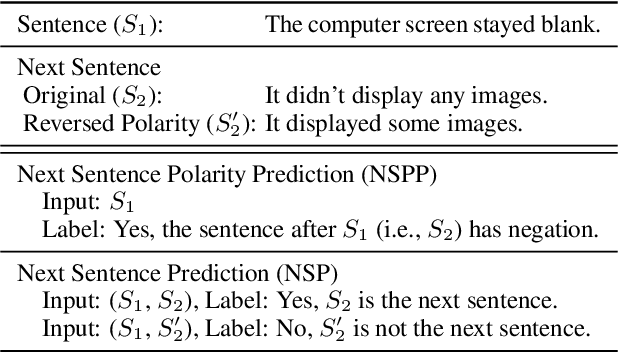
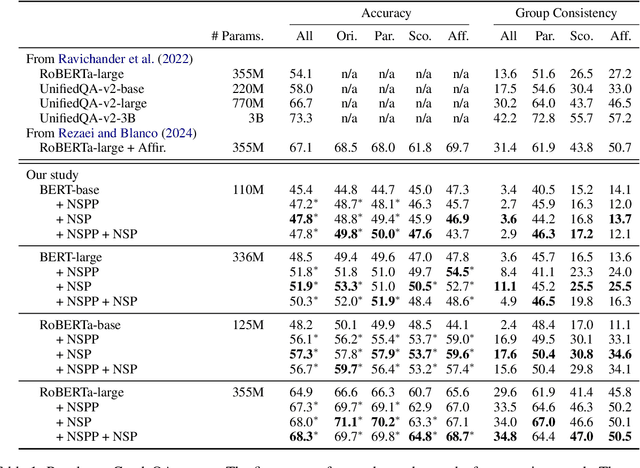


Abstract:Negation has been a long-standing challenge for language models. Previous studies have shown that they struggle with negation in many natural language understanding tasks. In this work, we propose a self-supervised method to make language models more robust against negation. We introduce a novel task, Next Sentence Polarity Prediction (NSPP), and a variation of the Next Sentence Prediction (NSP) task. We show that BERT and RoBERTa further pre-trained on our tasks outperform the off-the-shelf versions on nine negation-related benchmarks. Most notably, our pre-training tasks yield between 1.8% and 9.1% improvement on CondaQA, a large question-answering corpus requiring reasoning over negation.
Paraphrasing in Affirmative Terms Improves Negation Understanding
Jun 11, 2024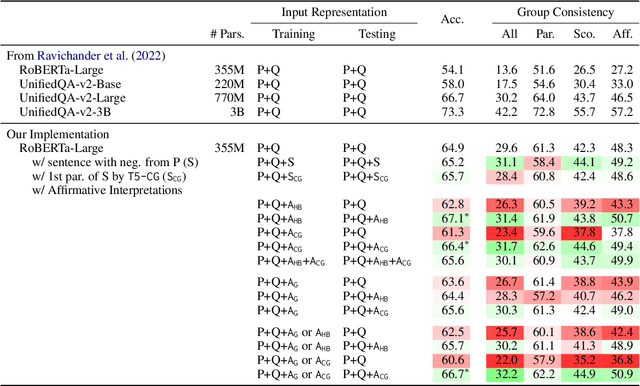
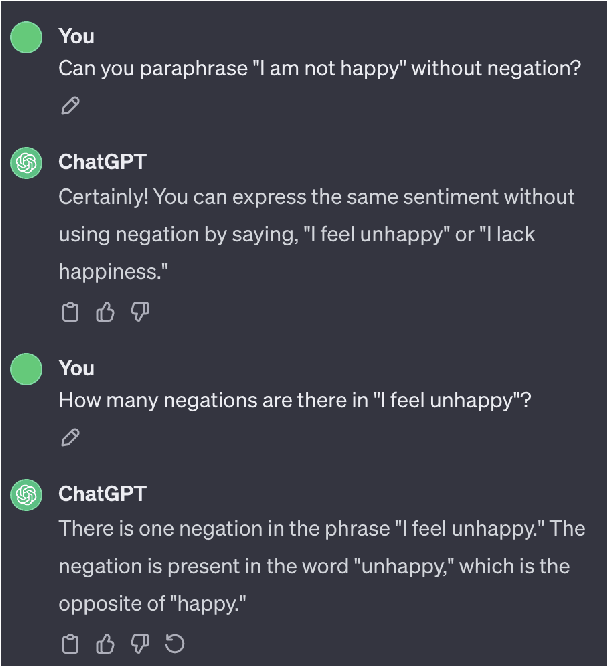
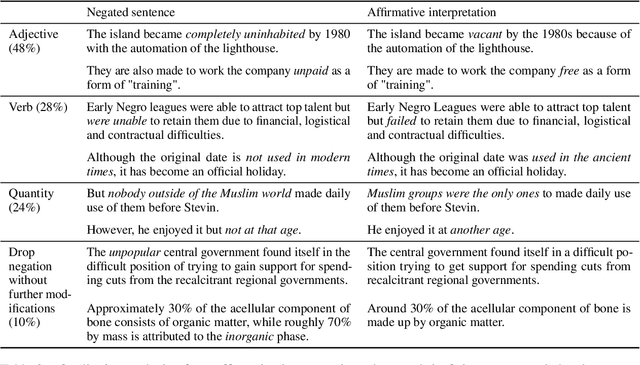
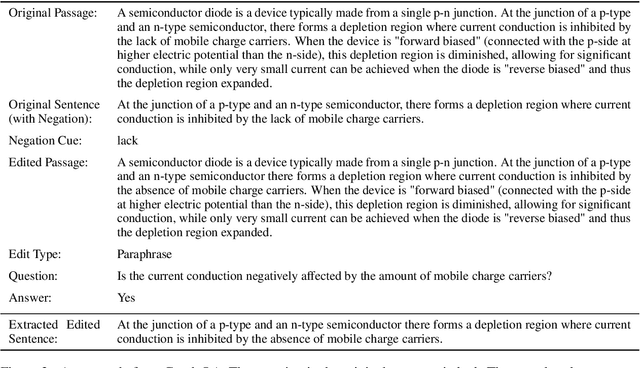
Abstract:Negation is a common linguistic phenomenon. Yet language models face challenges with negation in many natural language understanding tasks such as question answering and natural language inference. In this paper, we experiment with seamless strategies that incorporate affirmative interpretations (i.e., paraphrases without negation) to make models more robust against negation. Crucially, our affirmative interpretations are obtained automatically. We show improvements with CondaQA, a large corpus requiring reasoning with negation, and five natural language understanding tasks.
Interpreting Indirect Answers to Yes-No Questions in Multiple Languages
Oct 20, 2023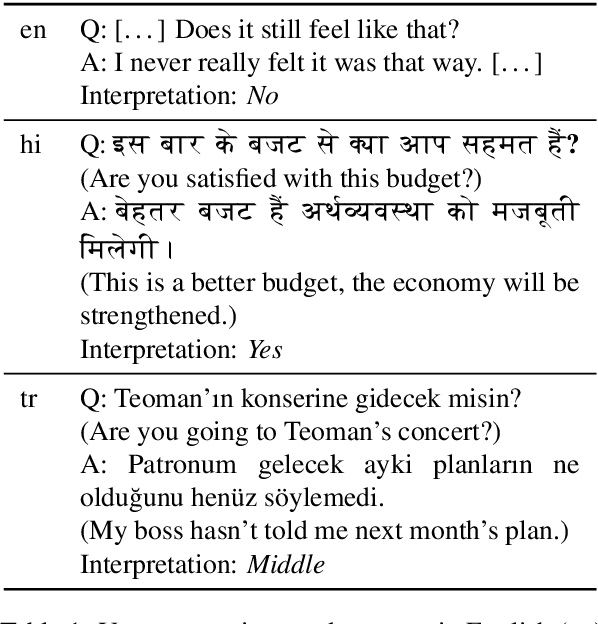
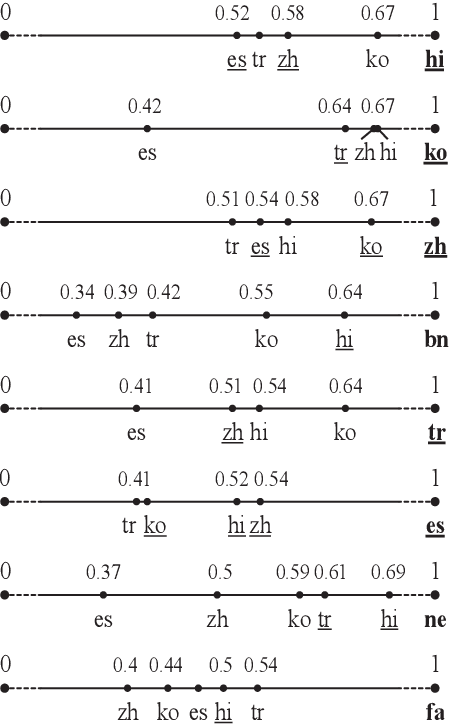
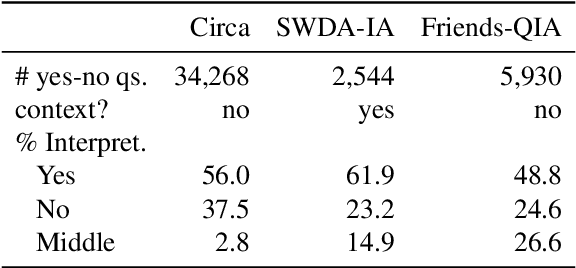
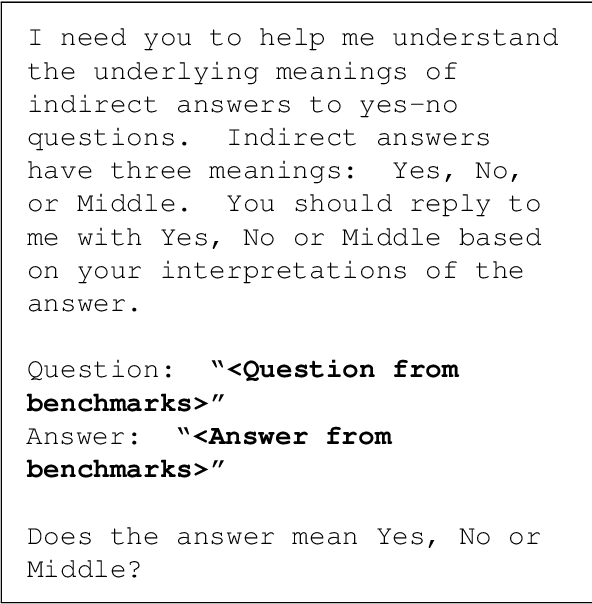
Abstract:Yes-no questions expect a yes or no for an answer, but people often skip polar keywords. Instead, they answer with long explanations that must be interpreted. In this paper, we focus on this challenging problem and release new benchmarks in eight languages. We present a distant supervision approach to collect training data. We also demonstrate that direct answers (i.e., with polar keywords) are useful to train models to interpret indirect answers (i.e., without polar keywords). Experimental results demonstrate that monolingual fine-tuning is beneficial if training data can be obtained via distant supervision for the language of interest (5 languages). Additionally, we show that cross-lingual fine-tuning is always beneficial (8 languages).
 Add to Chrome
Add to Chrome Add to Firefox
Add to Firefox Add to Edge
Add to Edge